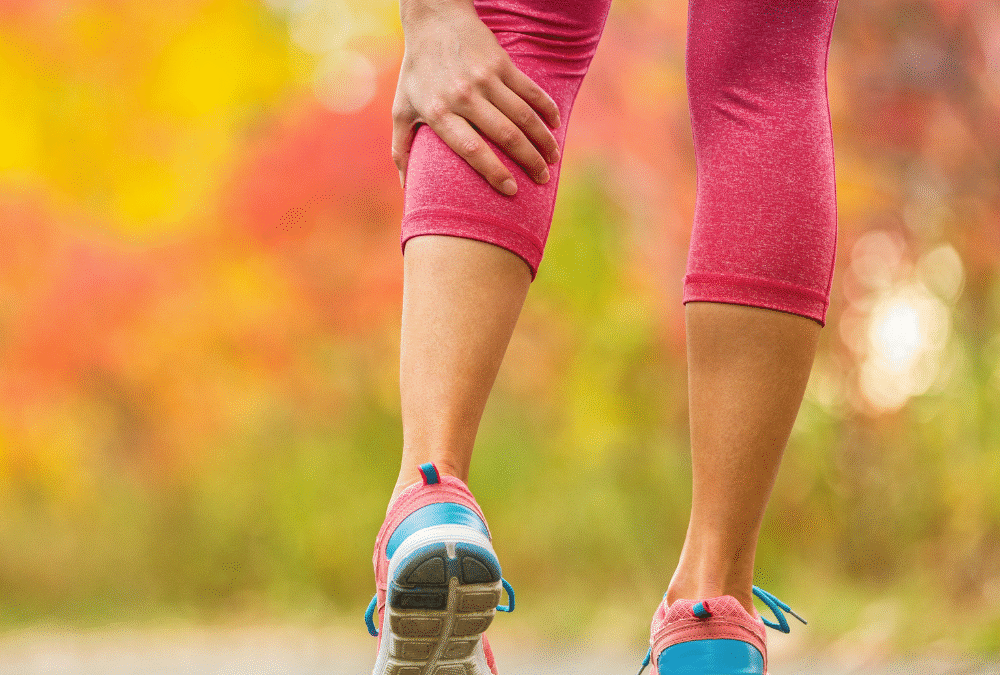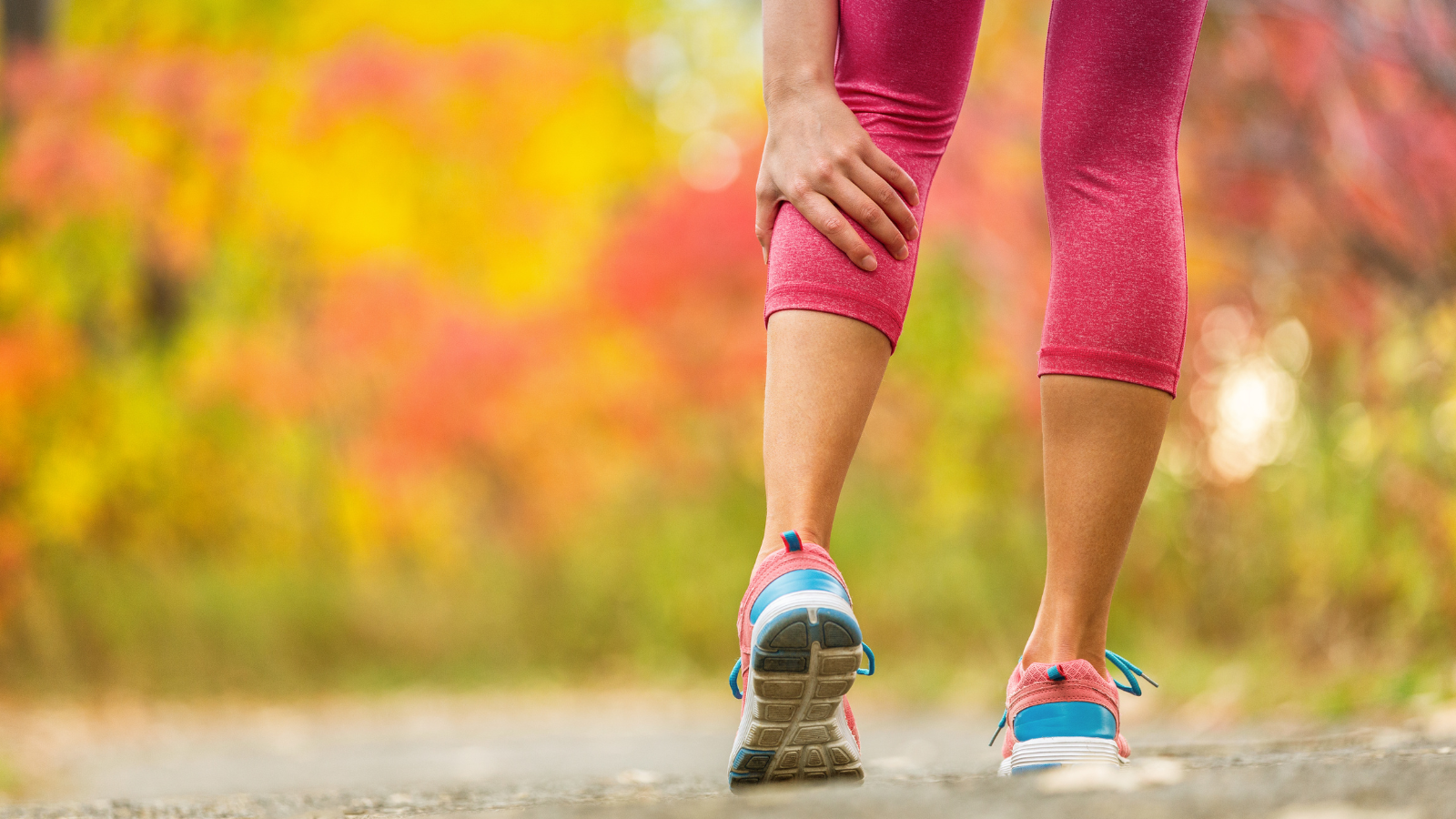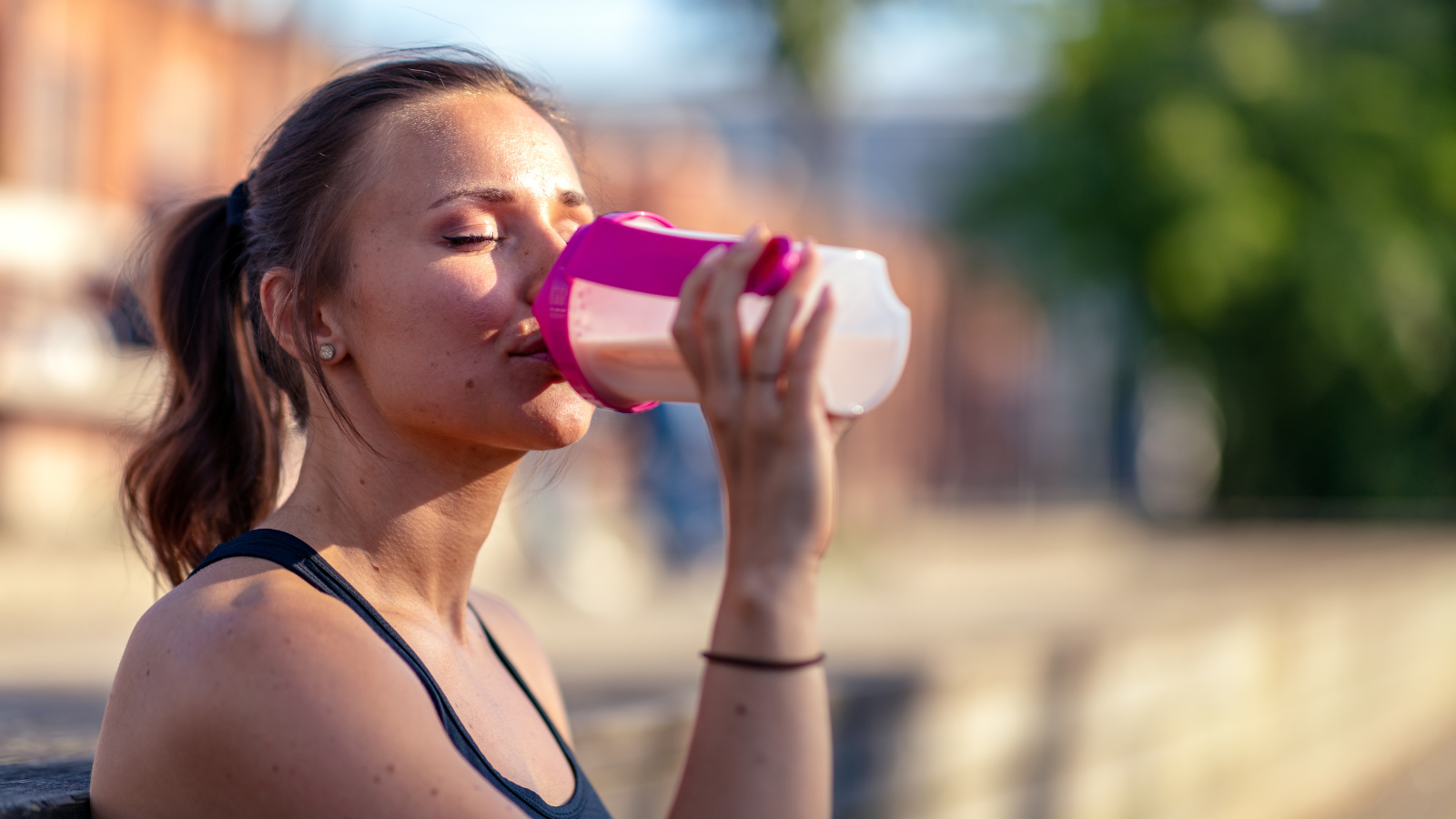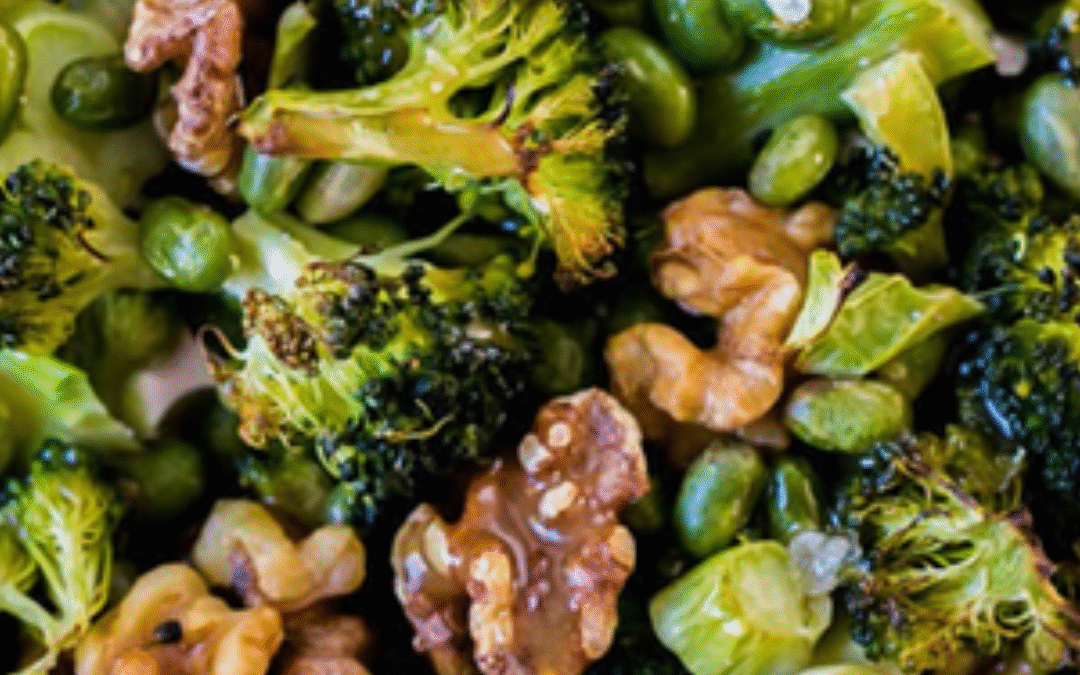
One Pan Roasted Edamame & Broccoli Salad
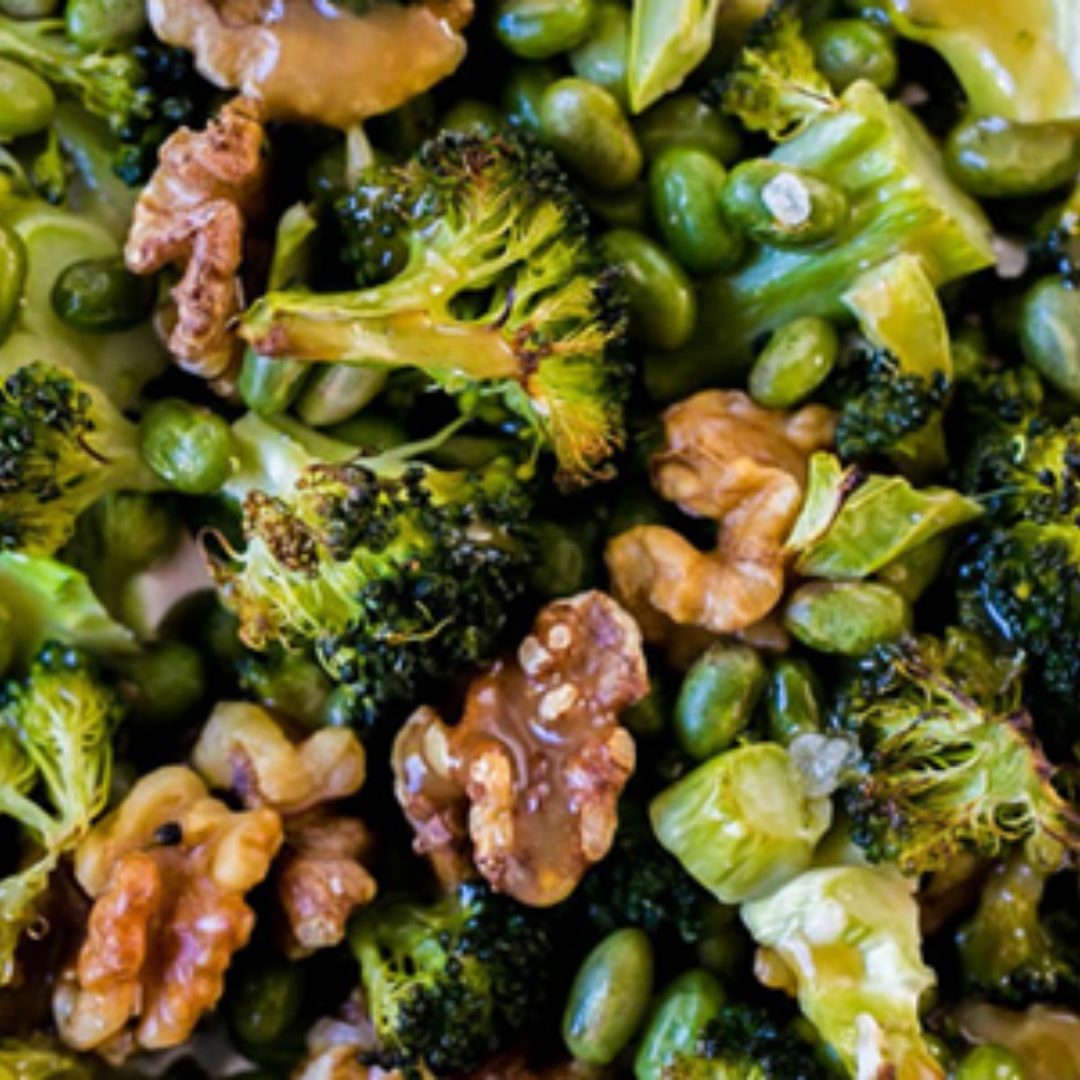
The Health Benefits of Apple Cider Vinegar, Edamame, Broccoli, and Walnuts for Women in Perimenopause and Menopause
Navigating perimenopause and menopause can be challenging, but certain foods may offer support during this transitional phase. Apple cider vinegar, edamame, broccoli, and walnuts are nutrient-rich options that can help alleviate some of the common perimenopause symptoms. Incorporating this into a delicious One Pan Roasted edamame and Broccoli salad is one way to get a big bang for your buck.
Apple Cider Vinegar: A Digestive and Hormonal Ally
Apple cider vinegar (ACV) has been associated with various health benefits, particularly for women experiencing perimenopause and menopause. Its acetic acid content can aid in regulating blood sugar levels, which can fluctuate during hormonal changes. Some studies suggest that ACV might help lower cholesterol levels, potentially reducing the risk of cardiovascular issues common during menopause.
Additionally, ACV’s probiotic properties can support gut health by promoting the growth of beneficial bacteria. A healthy gut microbiome is essential for hormone metabolism, as it helps process and eliminate excess estrogen, potentially alleviating symptoms like hot flashes and mood swings.
Edamame: A Plant-Based Protein Powerhouse
Edamame, or young soybeans, are rich in protein, fiber, and essential nutrients like folate and magnesium. For women in perimenopause and menopause, edamame offers several benefits:
- Hormonal Balance: Edamame contains phytoestrogens, plant compounds that mimic estrogen in the body. These compounds may help alleviate menopausal symptoms such as hot flashes and night sweat.
- Heart Health: The fiber and protein content in edamame can help lower LDL (bad) cholesterol levels, reducing the risk of heart disease, which increases after menopause.
- Bone Health: Regular consumption of soy foods like edamame may lower the risk of osteoporosis by supporting bone density.
Broccoli: A Cruciferous Companion for Hormonal Health
Broccoli is a cruciferous vegetable packed with nutrients beneficial for women undergoing hormonal changes:
- Hormone Metabolism: Broccoli contains compounds like sulforaphane, which may influence estrogen metabolism by promoting the production of beneficial estrogen metabolites. This balance can help reduce the risk of hormone-related cancers and alleviate menopausal symptoms.
- Bone Support: Rich in calcium and vitamin K, broccoli contributes to maintaining bone density, which is crucial as the risk of osteoporosis increases during menopause.
- Digestive Health: The fiber content in broccoli supports digestive health by promoting regular bowel movements and preventing bloating, a common concern during menopause.
Walnuts: Nutrient-Dense Nuts for Cognitive and Cardiovascular Health
Walnuts are a rich source of nutrients that support overall health, particularly during menopause:
- Brain Health: Walnuts contain alpha-linolenic acid (ALA), a plant-based omega-3 fatty acid known to support memory and cognitive function. Consuming walnuts may help slow cognitive decline and reduce the risk of dementia, Omega 3 is also anti-inflammatory which may help to relieve some of those aches and pains associated with drops in estrogen.
- Heart Health: The ALA in walnuts also contributes to heart health by improving lipid profiles and lowering harmful cholesterol levels.
- Hormonal Balance: Nutrient-rich foods like walnuts can help stabilize blood sugar levels, reducing energy slumps and supporting overall hormonal balance during menopause. This is because women become more insulin resistance as their estrogen levels drop
Incorporating apple cider vinegar, edamame, broccoli, and walnuts into this delicious quick and easy to prepare one pan meal can provide valuable nutrients and support during perimenopause and menopause. These foods offer benefits such as hormonal balance, heart health, blood sugar balance and cognitive support.
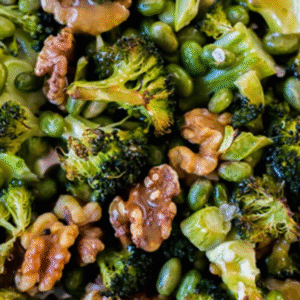
One Pan Roasted Edamame & Broccoli Salad
Ingredients
- 5 cups Broccoli Chopped into Florets
- 1 cup Frozen Edamame Shelled
- 1 cup Walnuts
- 1/4 cup Avocado Oil Divided
- 1/2 tsp Sea Salt
- 1 tbsp Almond Butter
- 1 tbsp Apple Cider Vinegar
Instructions
- Preheat oven to 450ºF (232ºC) and line baking sheet with foil.
- In a large mixing bowl, toss the broccoli florets, edamame, walnuts, half the avocado oil, and season with salt. Transfer to baking sheet and spread into an even layer. Bake for 25 minutes.
- Meanwhile, in a small jar, combine the remaining avocado oil, almond butter and apple cider vinegar. Shake well. Add more water to thin if necessary.
- Drizzle desired amount of dressing over top of the salad and serve.
Notes
instead of almond butter.No Avocado Oil: Use extra virgin olive oil or melted coconut oil instead.

